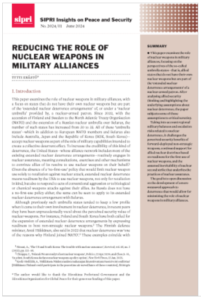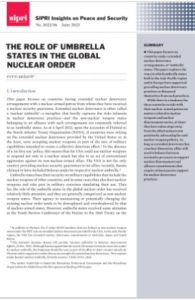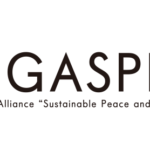Research Project on Security Without Reliance on Nuclear Deterrence

For a world without nuclear weapons, HOPe looks beyond nuclear deterrence and seeks security without reliance on nuclear weapons. In the complicated world of multi-polarization, unstable regional affairs, and advanced and emerging technologyies, security system and arrangements are transforming. Working together with domestic and international experts, HOPe rethinks nuclear deterrence and envision what security without reliance on nuclear weapons look like in global and regional perspectives.
Reports and Papers
FY2024
The Royal United Services Institute for Defence and Security Studies (RUSI)
Envisioning Global Security Without Reliance on Nuclear Deterrence
Research Project: Envisioning Global Security Without Reliance on Nuclear Deterrence (RUSI website)
Related activity: conference (RUSI website)
FY2023
Stockholm International Peace Research Institute (SIPRI)
Reducing the Role of Nuclear Weapons in Military Alliances
Author: Dr Tytti Erästö
Summary:
This paper examines the role of nuclear weapons in military alliances, focusing on the perspectives of the so-called umbrella states—that is, allied states that do not have their own nuclear weapons but are part of the ‘extended nuclear deterrence arrangements’ of a nuclear-armed patron. After analysing allied security thinking and highlighting the underlying assumptions about nuclear deterrence, the paper subjects some of those assumptions to critical scrutiny.
Taking into account regional military balances and escalation risks related to nuclear deterrence, it challenges the perceived security benefits of forward-deployed non-strategic weapons, continued support for allied nuclear doctrines based on readiness for the first use of nuclear weapons, and the assumed inevitability of nuclear second strike that underlies the practices of nuclear assurance.
The goal is to open discussion on the development of a more measured approach to deterrence that would allow for minimizing the role of nuclear weapons in military alliances.
FY2022
Stockholm International Peace Research Institute (SIPRI)
The Role of Umbrella States in the Global Nuclear Order
Author: Dr Tytti Erästö
Summary:
This paper focuses on countries under extended nuclear deterrence arrangements, or ‘umbrella’ states. The paper explores the ways in which umbrella states both in the Asia-Pacific region and in Europe have supported prevailing nuclear deterrence practices or distanced themselves from such practices. While there is a tendency for these countries to side with their nuclear-armed patron on matters related to nuclear weapons and nuclear disarmament norms, at times they have taken steps away from the allied mainstream position by advocating for anti-nuclear weapon policies. As long as extended deterrence has a nuclear dimension, allies will need to balance between normative pressures to support nuclear disarmament and alliance commitments that require at least passive support for nuclear deterrence practices.
Event Recordings
[Voice Audio] NPT PrepCom 2024 Side Event “Looking Beyond Nuclear Deterrence: Insights and Deliberations towards a World without Nuclear Weapons” (July 24, 2024)
G7 Hiroshima Summit Related Event “Rethinking Nuclear Deterrence” (April 28, 2023)
NPT PrepCom 2023 Side Event “Looking Beyond Nuclear Deterrence: A Mid-term Perspective on Nuclear Disarmament” (August 02, 2023)
Research Project on Nuclear Disarmament
From 2016 to 2021, HOPe and Hiroshima pursued concrete measures or approaches for nuclear disarmament, comissioning international research institutes including United Nations Institute for Disarmament Research (UNIDIR), the Stockholm International Peace Research Institute (SIPRI), the Royal Institute of International Affairs (Chatham House), and the UK University of Leicester.
Tags associated with this article





-150x150.jpg)




